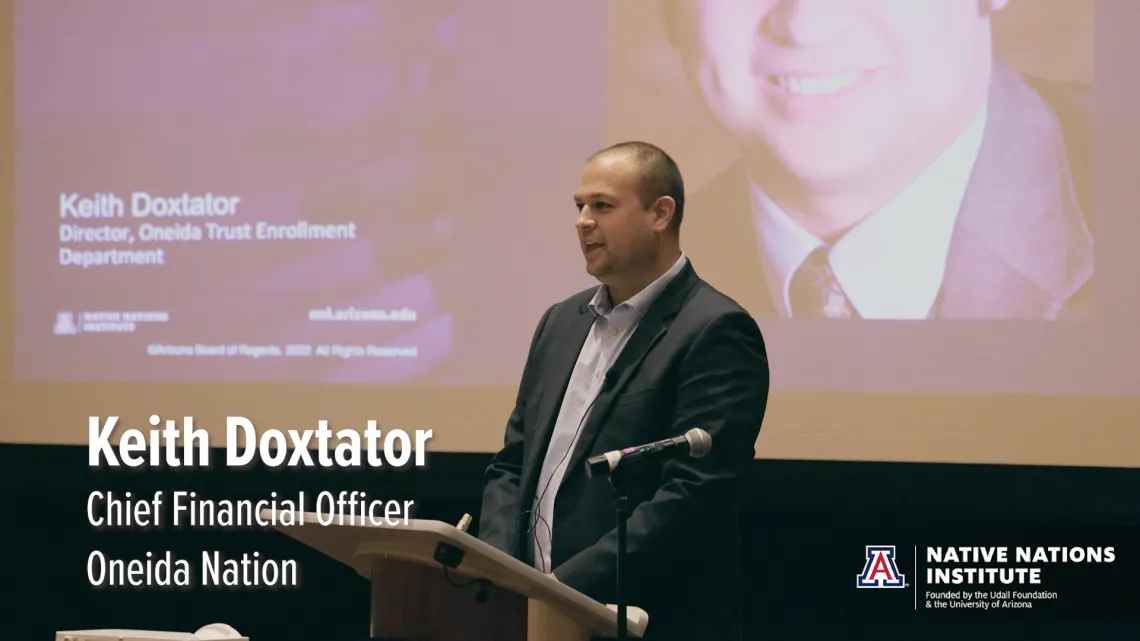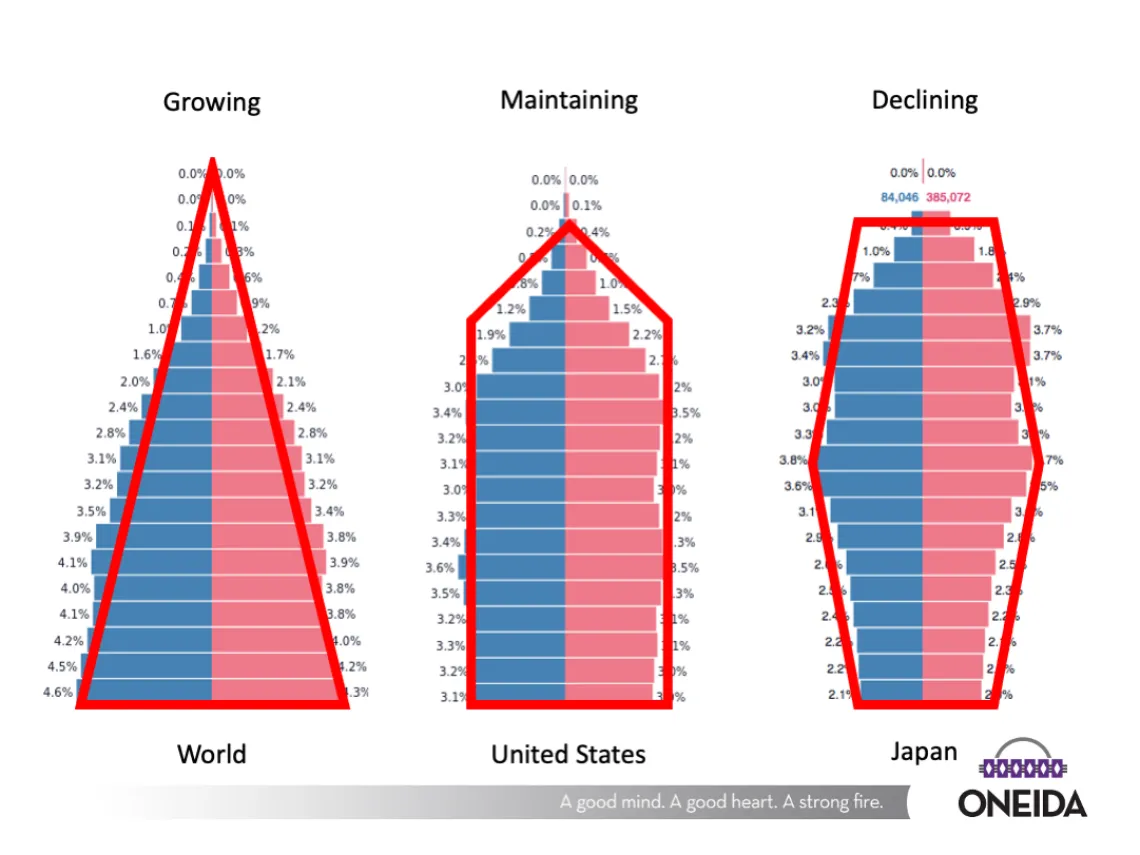Watch Now: Oneida Nation CFO Breaks Down the Problem with Blood Quantum at NNI’s 2022 Remaking Tribal Constitutions Seminar
Financial analyst and statistician Keith Doxtator worked with a demographer to show skeptical citizens of a once-growing Native nation how relying on blood quantum for enrollment would eventually lead to the Tribe’s extinction.

Watch the full presentation here.
The issue of how Native nations can and should go about determining their requirements for citizenship is always a hot topic among tribal leaders and Indigenous governance scholars. And the question of Blood Quantum (BQ) – that is, the determination of a person’s eligibility for citizenship based on the portion of “Indigenous blood” they possess – is particularly contentious.
“Citizenship, enrollment criteria and who we are as Indigenous Peoples (as well as) our nationhood all really depend on this critical issue,” said NNI Executive Director Joan Timeche, “and we know that nations out there are wrestling with this.”
During the Native Nations Institute’s (NNI) Remaking Tribal Constitutions Seminar held at Wild Horse Pass Resort on the Gila River Indian Community in central Arizona in September 2022, current Chief Financial Officer and former Director of Oneida Trust Enrollment for the Oneida Nation Keith Doxtator explains how he used his skills as a financial analyst and statistician to demonstrate the very real existential threat posed to Native nations who rely on BQ to define enrollment eligibility.
The Problem with BQ

Three population pyramids show a growing population (the world), a stable population (the United States) and a shrinking population (Japan).
Doxtator explains that, though the Oneida Nation was actually seeing growth in its population for several decades, that growth had leveled off in recent years.
“There was certainly a probably more elder opinion that they lived through the tribe tripling in size, so to approach them today and say, ‘We don't think enrollment is sustainable,’ it was unintuitive to them,” said Doxtator. “They've seen nothing but growth or fast growth their whole life, so this was one of the very first hurdles we had to overcome.”
Using population pyramids from the world (a growing population), the United States (a stable population) and Japan (a shrinking population) as a basis for comparison, Doxtator was able to demonstrate to a skeptical public that, if minimum BQ requirements remained a primary criterion for tribal enrollment, the Oneida Nation would actually cease to exist in just a few generations.
“It's also important to note that this decline is not because we're having less children,” Doxtator said of the shrinking enrollment of his nation. “It's that predictable blood quantum effect… that once members start having children below the eligible count, they are no longer included in the enrolled membership. And, essentially, it's the end of the generation.”
This video shows the shifting population demographics of the Oneida Nation over time. Source: "Age & Quantum Projection" from the Demographic Analysis and Forecasting for the Oneida Nations of Wisconsin. Karl Eschbach & Jonathan Taylor. 2019.
Doxtator pointed out how recent headlines about the shrinking population in Japan included discussions about adult diaper sales in the Asian nation outpacing infant diaper sales and the need to convert elementary schools to elder care facilities. “So, the next step of that conversation turned into, ‘When do we turn Oneida’s elementary school into an elder care facility?” Doxtator said, adding, “I think there's a really abrupt reality that hits the membership and… that sense of pride where we don’t want that to happen.”
Doxtator outlines how the Oneida Nation approached the issue of getting its citizens to first recognize the problem created by their existing BQ requirement, how they educated the public on the different ways they could approach the problem, and what they are doing now to move toward a solution that would be supported by a majority of Oneida’s citizenship. “I'm really optimistic about the next phase of our community conversations and where that takes us,” he concluded.
The full video was recently added to NNI’s Indigenous Governance Database (IGD) and is now available to stream on demand for free.
Additional videos from the 2022 Remaking Tribal Constitutions Seminar are forthcoming.

